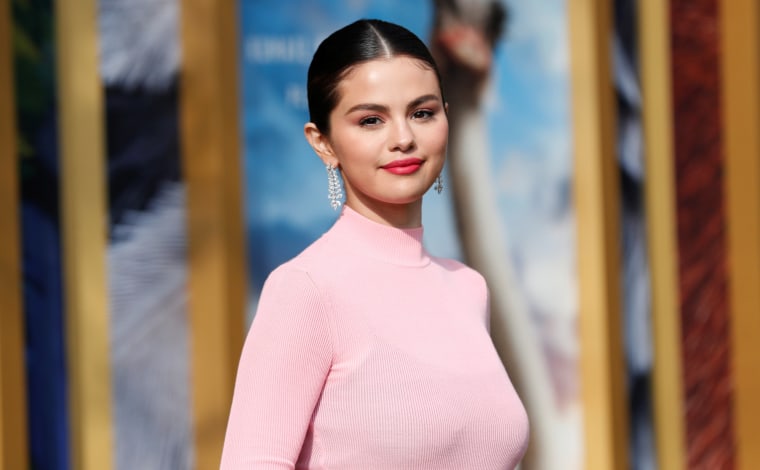Selena Gomez says she experienced emotional abuse in her past relationship with fellow musician Justin Bieber.
"I've found the strength in it. It's dangerous to stay in a victim mentality," Gomez said of her on-again/off-again relationship with Bieber, in an interview with NPR on Sunday. "And I'm not being disrespectful. I do feel I was a victim to certain abuse."
When asked whether this abuse could be categorized as "emotional abuse," Gomez answered in the affirmative.
"Yes, and I think that it's something that ... I had to find a way to understand it as an adult," Gomez said. "As much as I definitely don't want to spend the rest of my life talking about this, I am really proud that I can say I feel the strongest I've ever felt and I've found a way to just walk through it with as much grace as possible."
Gomez first started dating Bieber in 2011 when she was 18 and he was 16. The two musicians last dated in 2018. It is not clear when in the relationship she experienced the alleged emotional abuse.
The National Coalition Against Domestic Violence defines emotional or psychological abuse as a pattern of abuse that can include manipulation, verbal abuse, rejection, bullying and intimidation, though Gomez did not go into detail about the form of emotional abuse she allegedly suffered. It often includes gaslighting, a form of manipulation whereby a person makes their partner question their ability to trust themselves and their perception of reality, the NCADV said. Nearly half of U.S. women have experienced psychological abuse, according to the center.This form of abuse is more subtle than physical or sexual violence, though it can be accompanied by other forms of abuse, and can happen to anyone regardless of gender, age, sexual orientation, race or economic background.
NBC News has reached out to Bieber's and Gomez’s representatives for comment. Though he has not released a statement regarding Gomez's interview, Bieber revealed in an Instagram post in September that he "started doing heavy drugs at 19 and abused all my relationships" as he grappled with rising fame.
"I became resentful, disrespectful to women and angry," he wrote, adding that it's taken him years to address these "relationship habits."
Bieber married Hailey Baldwin in September 2018 and referred to their marriage as "the best season" of his life in the post.
Gomez has consistently been open about struggles in her life, including her public breakups with Bieber and The Weeknd, her Lupus diagnosis and getting a kidney transplant.
"The reason why I've become so vocal about the trials and tribulations of my life is because people were already going to narrate that for me," she told NPR. "I want to be able to tell my story the way that I want to tell it ... I just had to find a way to claim my story."
One way Gomez is shaping her narrative is through her new album, "Rare," which was released earlier this month. The word rare holds a special significance for her, beyond it being the title of her album – she got it tattooed on her neck as a reminder that despite social media demanding conformity, she is unique.
"Rare," Gomez's third studio album, includes a couple of songs about breakups, including "Lose You to Love Me," but the overarching theme of the record is mental health. Gomez also deals with anxiety and depression and says she still has days where it's "hard for me to get out of bed."
"I think the only way it's helped me is that I can use that for good," Gomez said. "I want to live in a world where an 11-year-old is not committing suicide because of bullying on social media. That's what I think my real mission is."
If you or someone you know is experiencing intimate partner violence, call the National Domestic Violence Hotline at 1-800-799-7233 or visit https://www.thehotline.org/ for additional resources.

